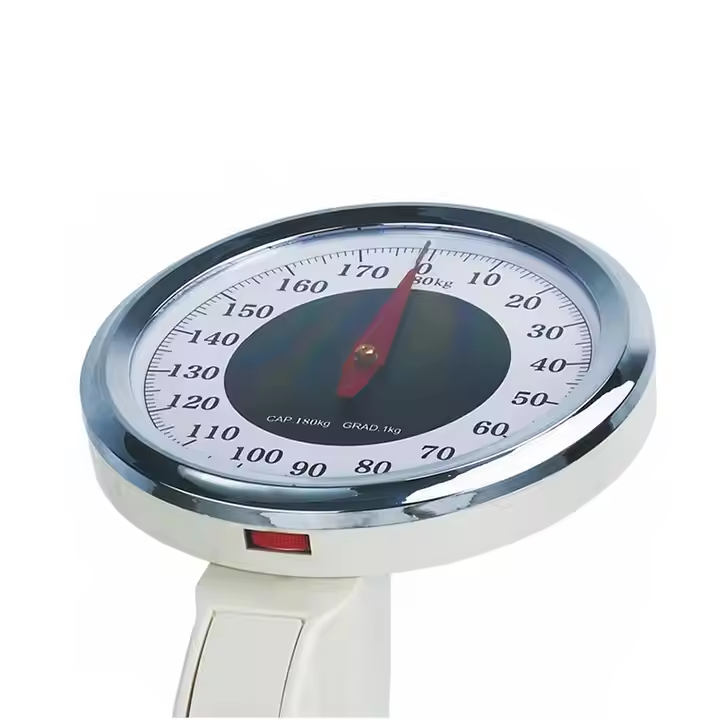Understanding the Role of Weight Monitoring in Fitness Success
Embarking on a fitness journey is like setting sail on an ocean of possibilities - you need the right tools to navigate your course effectively. Body scales have emerged as one of the most fundamental instruments in tracking fitness progress, providing valuable data that helps shape and adjust your wellness strategy. While many focus solely on workout routines and diet plans, the significance of regular weight monitoring often goes underappreciated.
Modern body scales have evolved far beyond simple weight measurements, offering insights into body composition, muscle mass, and other vital metrics that paint a comprehensive picture of your health status. These sophisticated tools have become indispensable companions for anyone serious about their fitness goals, whether aiming for weight loss, muscle gain, or maintaining optimal health.
The Science Behind Body Composition Monitoring
Advanced Measurement Technologies
Today's body scales employ cutting-edge technology to deliver accurate measurements. Bioelectrical impedance analysis (BIA) sends a small, safe electrical current through your body to measure various composition elements. This technology allows body scales to determine not just weight, but also body fat percentage, muscle mass, bone density, and water content.
The precision of modern body scales rivals professional-grade equipment, making it possible to track subtle changes in body composition from the comfort of your home. This technological advancement has revolutionized how we approach fitness monitoring, providing laboratory-grade insights at a fraction of the cost.
Interpreting Body Composition Data
Understanding the numbers displayed on body scales requires some knowledge of body composition basics. While weight alone can be misleading, comprehensive data about muscle mass, body fat percentage, and water retention helps create a more accurate picture of your fitness progress. These measurements allow you to distinguish between beneficial changes (like muscle gain) and less desirable ones (like increased body fat).
Regular monitoring through body scales helps identify patterns in how your body responds to different dietary and exercise interventions. This information becomes invaluable in tailoring your fitness approach to achieve optimal results.
Maximizing Your Fitness Results Through Regular Monitoring
Establishing Baseline Measurements
Beginning any fitness journey requires establishing clear starting points. Body scales provide objective baseline measurements against which all future progress can be measured. This initial data helps in setting realistic goals and creating targeted fitness plans that address specific areas of concern.
Regular weigh-ins help track progress over time, allowing you to adjust your approach based on concrete data rather than subjective feelings or appearances. This scientific approach to fitness monitoring significantly increases the likelihood of achieving your desired outcomes.
Tracking Progress and Adjusting Strategies
The real power of body scales lies in their ability to provide consistent feedback on your fitness efforts. By monitoring changes in various body composition metrics, you can identify which strategies are working and which need modification. This data-driven approach takes the guesswork out of fitness planning and allows for more effective goal achievement.
Many modern body scales sync with smartphone apps, creating detailed progress charts and trends over time. This visual representation of your journey can be incredibly motivating and helps maintain long-term commitment to your fitness goals.

Advanced Features of Modern Body Scales
Smart Connectivity and Data Integration
The latest body scales offer seamless integration with fitness apps and smart devices, creating a comprehensive health monitoring ecosystem. This connectivity allows for automatic data logging, trend analysis, and even personalized recommendations based on your progress. The ability to share data with healthcare providers or fitness trainers enables more informed guidance and support.
Many scales now include features like weather forecasts, air quality measurements, and even pregnancy tracking modes, making them versatile wellness tools rather than simple weight monitors.
Multi-User Functionality
Modern body scales can recognize and track multiple users, making them perfect for family use or shared living situations. Each user maintains their private profile while sharing a single device, making fitness tracking more accessible and cost-effective for households.
Advanced recognition systems ensure accurate data attribution, while parental controls and special modes for athletes or children provide customized monitoring appropriate for different users.
Maintaining Accuracy and Consistency
Proper Scale Placement and Usage
To ensure accurate measurements, body scales should be placed on a hard, flat surface away from moisture and extreme temperatures. Consistency in weighing conditions - such as time of day and clothing - is crucial for meaningful tracking. Many experts recommend morning weigh-ins, after using the bathroom but before eating or drinking, for the most consistent results.
Regular calibration and battery checks help maintain accuracy, while following manufacturer guidelines for cleaning and maintenance ensures longevity of your investment.
Understanding Measurement Variables
Body weight naturally fluctuates throughout the day due to factors like hydration, food intake, and activity levels. Understanding these variables helps prevent unnecessary concern over minor weight changes. Focus on weekly or monthly trends rather than daily fluctuations for a more accurate picture of progress.
Factors like menstrual cycles, sodium intake, and exercise intensity can all impact body composition measurements. Keeping notes about these variables alongside your scale readings provides context for interpreting the data.
Frequently Asked Questions
How Often Should I Use Body Scales?
For most people, weighing in 2-3 times per week provides sufficient data while avoiding obsession with daily fluctuations. Consistency in timing and conditions is more important than frequency. Consider your personal goals and mental well-being when establishing a weighing routine.
Are Smart Body Scales Worth the Investment?
Smart body scales offer valuable features like automatic data tracking, trend analysis, and integration with other fitness apps. While basic scales can provide essential weight measurements, the additional insights and convenience of smart scales often justify the higher initial investment for serious fitness enthusiasts.
How Accurate Are Body Fat Measurements from Home Scales?
While not as precise as professional methods like DEXA scans, modern body scales provide reasonably accurate body fat estimates when used consistently. The key is to focus on trends rather than absolute numbers, as these can indicate whether your body composition is moving in the desired direction.

